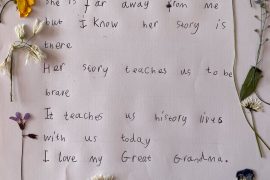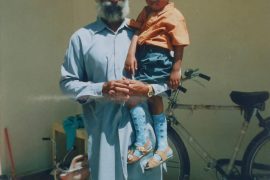Although not ‘mis-quoted’, in The Guardian article. I think it’s important to publish the un-edited version of the article to provide a more accurate context for the reasons behind the idea of Everyday Muslim. As most of this was edited out of the published article.
What Does Being a Muslim Mean To You?
To be a Muslim is a deeply personal and spiritual sense of being that is individual to every Muslim. It means living by the guidance of the Quran and following the teachings of the Prophet Muhammad called the Sunnah. Although, these can be interpreted differently one commonality or binding belief is the Shahadah; “There is no god but God, Muhammad is the messenger of God.”
Growing up, as a Muslim in London was a unifying experience shared with family and other Muslim friends. Socially, it was expressed through actions of kindness and consideration for neighbours, the elderly and each other – regardless of faith. Of the Sunnah teachings, my favourite is to smile. Smiling is considered a form of charity in Islam and epitomises what being a Muslim means to me.
Today, global events have transformed what being a Muslim means from a private to a public experience. We are faced with divisive and worrying questions from our children asking, “What does Jihad mean?” or “What is a Shia or a Sunni?”
Why or how these questions have been created is debatable. What I do know is being Muslim in essence can never change, only the political rhetoric that surrounds it.
Why Did I Start the Everyday Muslim Project?
Whilst researching another Muslim heritage project I came across this quote:
A sense of identity for many young Muslims, is formed from a mixture of experiences within the community, educational institutions, religion and family. Yet many young Muslims feel they have an inadequate grasp of their own heritage and history, against which to balance the other influences in their lives.’ It dawned on me that as a community we are not represented in any heritage institution.*
The idea for Everyday Muslim really began as a tribute to my parents and the many sacrifices and contribution they have made to society and a desire for a tangible legacy for younger generations to relate. However, the importance of the project became clear very quickly, the feeling of not having ‘a sense of belonging’ in extreme cases has impacted the community in such a deeply detrimental way as stories of young disaffected British Muslims leaving their homes and families to join extremist groups, so as they don’t feel demonised on the basis of their faith.
*Living apart together British Muslims and the paradox of multiculturalism Munira Mirza, Abi Senthilkumaran and Zein Ja’far 2007.
Sadiya Ahmed



Comments are closed.